A furniture store in Lima supporting craft collectives

Roula Khalaf, Editor of the FT, selects her favourite stories in this weekly newsletter.
In Lima’s bohemian Barranco district, a red-and-white-striped Peruvian flag flies proudly atop a grand white colonnaded mansion that’s fronted by a long balcony. Only the words Artesanos Don Bosco printed on the window indicate that this is in fact a furniture shop, stocked with pieces crafted more than 1,000km away in the Andes.
Don Bosco has been selling handmade cedar, cherry and walnut furniture to Lima’s elite for over a decade, but its story begins in 1976, when an Italian priest came across a remote village in the Ancash province of the Andes that had been decimated by an earthquake. “Father Ugo De Censi immediately saw the extreme poverty and resulting flow of migration,” says Fabio Tienforti, an Italian architect who has worked with Don Bosco since it opened. One day, while he was praying, the priest heard a divine voice calling him to restore first the church altarpiece and then the town itself. With the help of a carpenter in Italy, he set up a programme teaching the local boys to work with wood, providing them with a means of living while fulfilling his holy order. Over the years, a carpentry school was established.
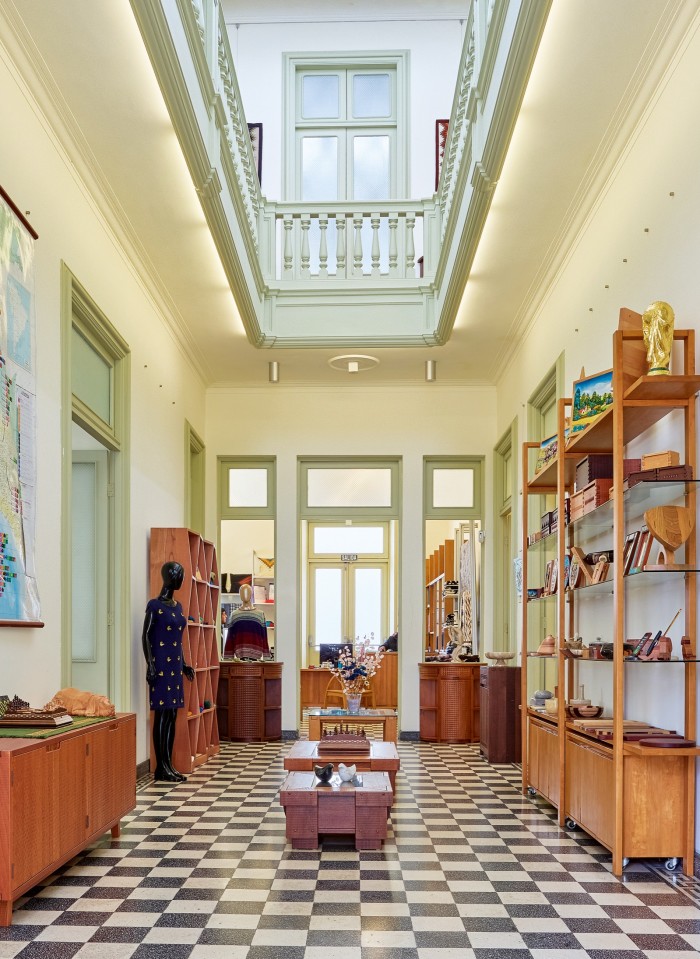
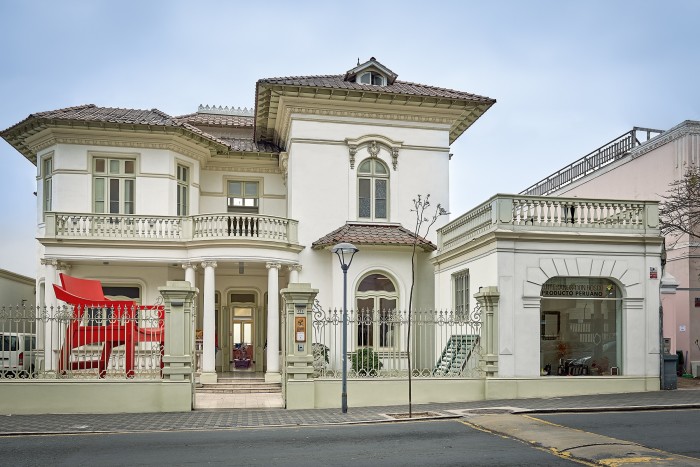
What began with the vision of a single missionary has now become a 1,000-person strong network of artisanal collectives scattered throughout the pueblitos (little villages) in the Cordillera Blanca mountain range. “We now have groups of all kinds including carpentry, sculpture, embossing, metalwork and, most recently, mosaics,” says Tienforti. The project increasingly takes on young women too, who often work as weavers making rugs from alpaca and sheep wool.
Today the store reflects the diversity of the artisans’ talents. Past a neat front garden and inside the warren of brightly lit rooms, colourful woven alpaca rugs hang from the walls, and marble sculptures depicting lovers embracing, birds in flight and woodland animals perch on ornate wooden cabinets. Furniture, built to order in woods sourced from the Peruvian jungle and Chilean Patagonia, includes glass-topped coffee tables (from $630), intricate wooden stools (from $210), weighty carved writing desks (from $520) and freestanding bookshelves (from $1,050).
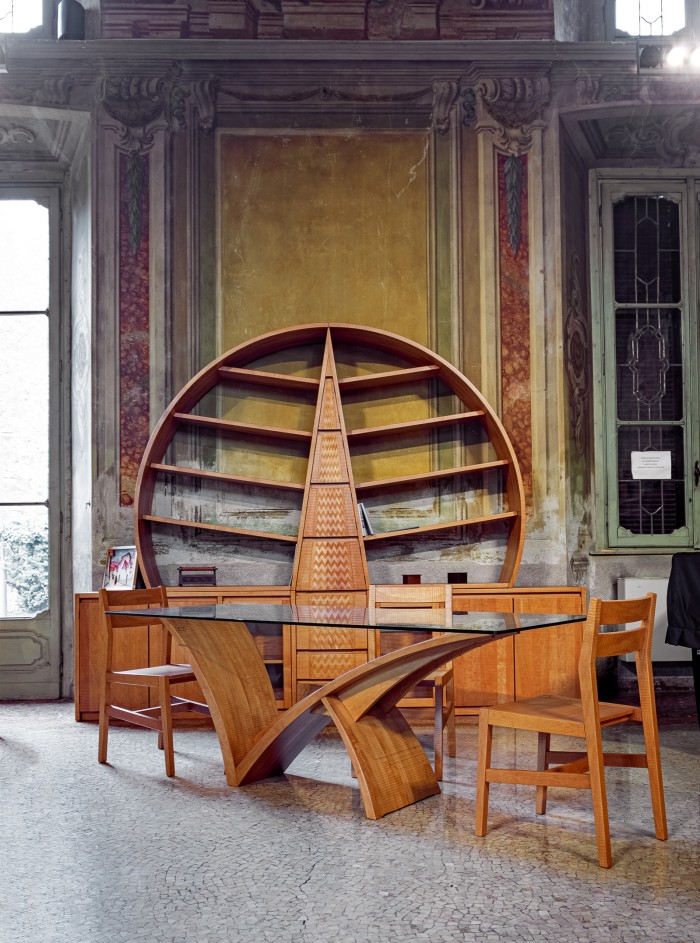
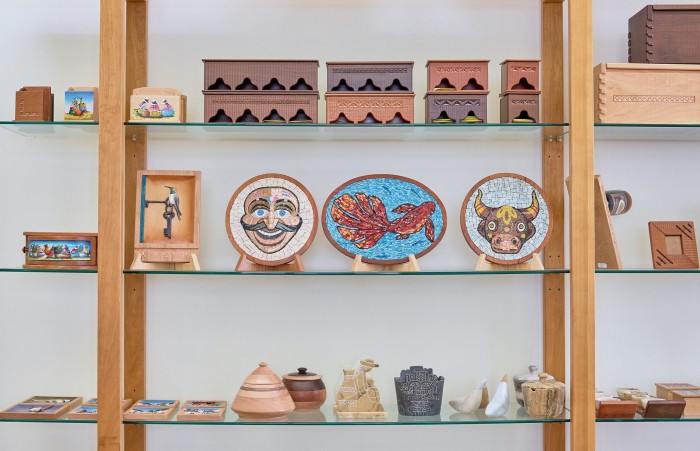
Their names nod towards their origin stories: the Luna de Miel (Honeymoon) bed ($2,050) was initially crafted as part of a bedroom set commissioned as a gift to newly married friends. The Cuarto de Luna (Quarter Moon) dining table ($1,730), with its clear glass top and crescent-shaped wooden base, honours the ancient Inca belief system that centres around the galaxy (named “cosmovision”). Idols and paintings of saints are dotted around the store, serving as a reminder of their original benefactor.
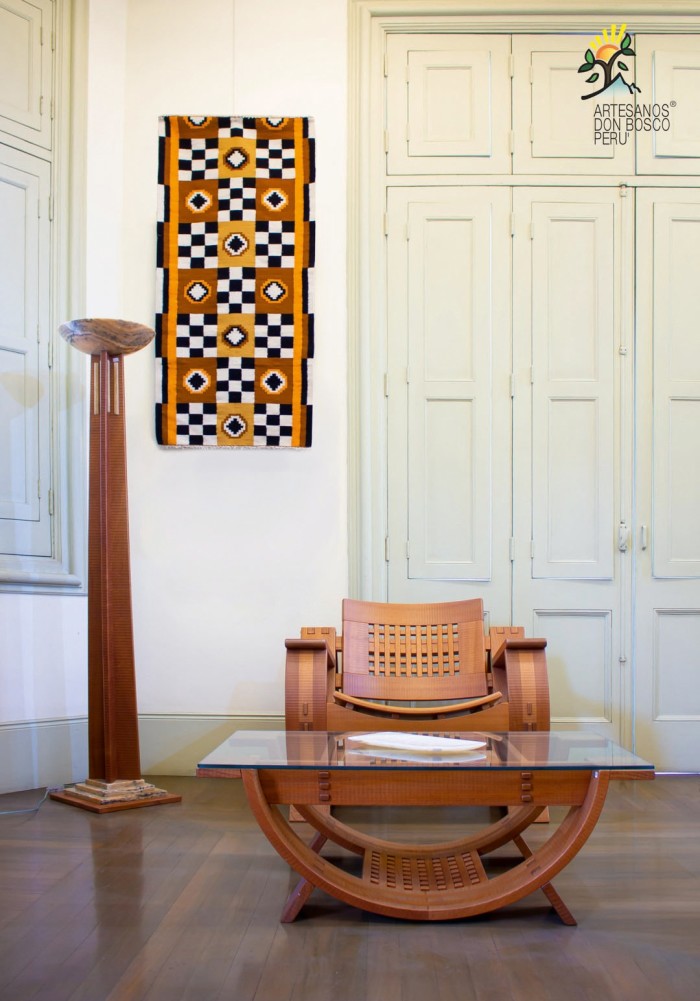
Tienforti emphasises that Don Bosco’s vision is not, and has never been, commercial. “Father Ugo set a unique goal,” he explains. “He wanted this work to develop a community and to be able to help those most in need. Giving an opportunity is, for me, the special part of being an artisan – enabling each person to express themselves in the best way they can.” By returning all of their profits to the artisans in the Peruvian mountains, they carry on the father’s vision of reciprocity.
Avenida San Martín 135, Lima 15063, Peru, artesanosdonbosco.com
Comments